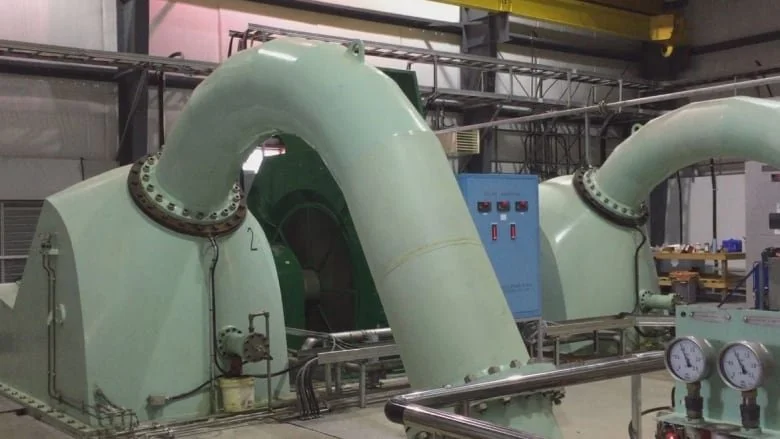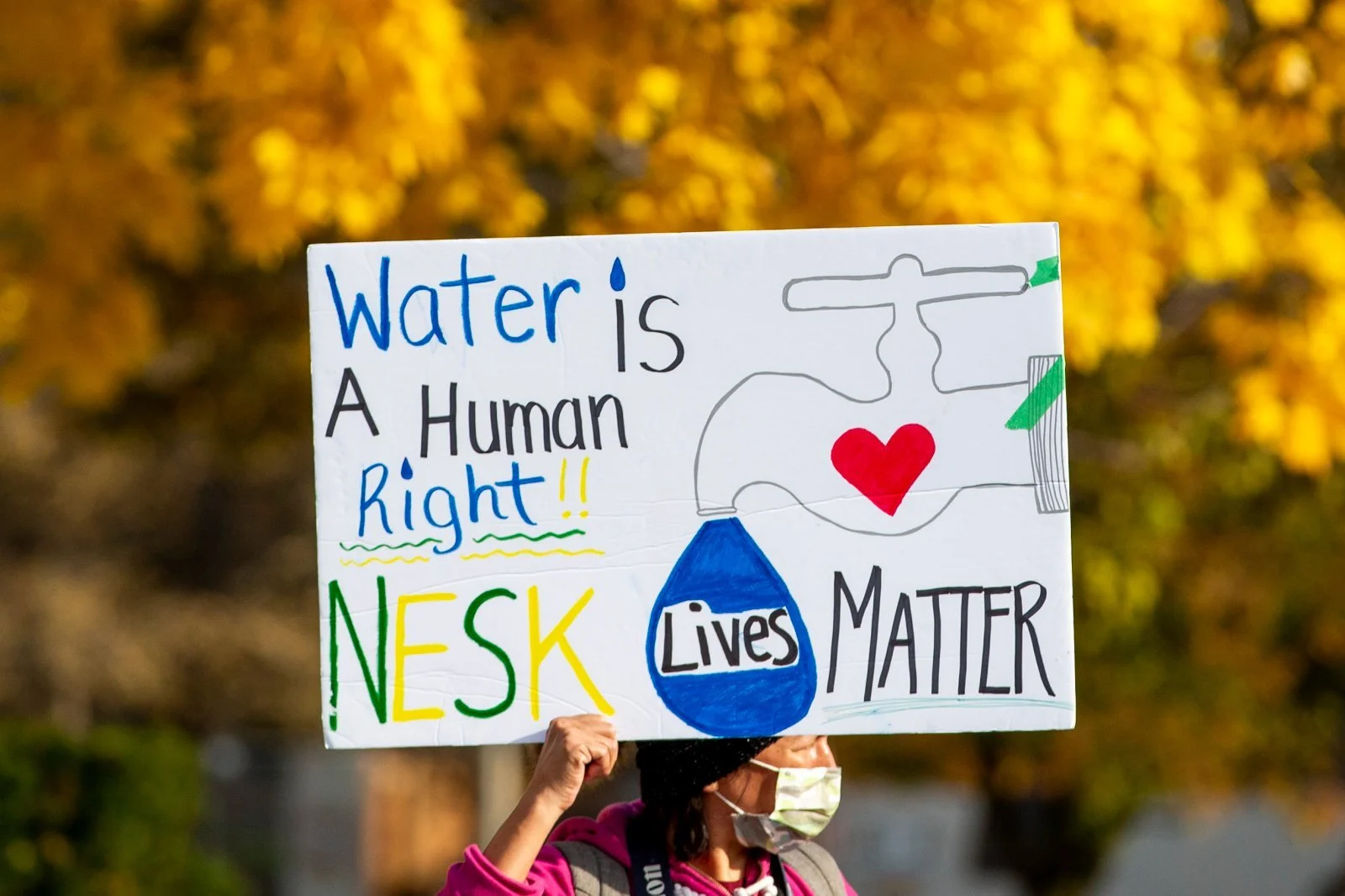Oneida Nation of the Thames First Nation (ONTFN) has been under a boil water advisory since 2019. However, the first steps in the slow process of changing that are expected shortly. “There is an agreement coming, it's just at the table now,” said ONTFN Chief Todd Cornelius. “We're expecting to inform our community soon of the agreement.” Cornelius was tight lipped about the timeline, but CTV News has learned an announcement is imminent.
Deadline for First Nations Drinking Water Settlement claim extended
First Nations and Indigenous individuals can breathe a sigh relief as the deadline to submit for compensation with the First Nations Drinking Water Settlement has now been extended. The First Nations Drinking Water Settlement is a settlement (agreement) between the Government of Canada (Canada) and certain First Nations and their members. Any Indigenous individual or First Nation affected by a long-term drinking water advisory that lasted for at least one year between November 20, 1995, and June 20, 2021, will now have until March 7, 2024, to submit their claims.
Province, Blueberry River First Nations reach agreement
The B.C. government and Blueberry River First Nations have reached a historic agreement that will guide them forward in a partnership approach to land, water and resource stewardship that ensures Blueberry River members can meaningfully exercise their Treaty 8 rights, and provide stability and predictability for industry in the region. “This agreement provides a clear pathway to get the hard work started on healing and restoring the land, and start on the joint planning with strong criteria to protect ecosystems, wildlife habitat and old forests,” said Chief Judy Desjarlais of the Blueberry River First Nations. “With the knowledge and guidance of our Elders, this new agreement will ensure there will be healthy land and resources for current and future generations to carry on our people’s way of life.”
Canada and Yukon chart new path with agreement to help protect and conserve nature
Protecting and conserving habitat and species requires collaborating with partners, including Indigenous peoples, all levels of government, industry, and community stakeholders. It calls for transformative change, innovation, and proper accounting for the value of nature across all sectors. The Governments of Canada and Yukon are committed to working together to protect and conserve biodiversity, habitat, and species at risk in the Yukon. This will contribute to the goal of protecting 25 per cent of land and fresh water in Canada by 2025 and 30 per cent by 2030.
Canada Infrastructure Bank invests in new shíshálh Nation Government District-owned wastewater treatment plant
The Canada Infrastructure Bank (CIB) and the shíshálh Nation Government District (sNGD) announced financial close on an agreement, which will see the CIB lend $6.4 million to support a new Port Stalashen Wastewater Treatment Plant through its Indigenous Community Infrastructure Initiative. The plant will be located on shíshálh Nation lands near Sechelt, B.C., and will play a role in enabling economic growth, protecting the coastal environment, and safeguarding public health through improving the outfall. The investment will serve the shíshálh Nation, which represents a population of more than 1,500 members, and lessees on shíshálh Nation Lands (Tsawcome) No. 1.
MANITOBA GOVERNMENT JOINS FERTILIZER CANADA, KEYSTONE AGRICULTURAL PRODUCERS TO RENEW AGREEMENT ON SUSTAINABLE USE OF NUTRIENTS
The Manitoba government, Keystone Agricultural Producers (KAP) and Fertilizer Canada have signed a fourth memorandum of understanding (MOU) to reaffirm their ongoing commitment to the 4R Nutrient Stewardship for the sustainable use of nutrients in crop production, Agriculture Minister Derek Johnson and Environment, Climate and Parks Minister Jeff Wharton announced here today.
What if Teenagers Renegotiate the Columbia River Treaty?
You may have heard about the Columbia River Treaty in the news once, or perhaps many times, over the last decade. The Columbia River Treaty is an agreement between Canada and the United States about our shared watershed. It was originally ratified in 1964 with negotiations to “modernize” it ongoing since May 2018. It’s big. It’s complicated. It’s important. It’s confusing.
Agreement to protect Great Lakes celebrates 50th anniversary
An agreement between Canada and the U.S. that has improved and protected the water quality of the Great Lakes and also improved the lives of millions across the basin celebrated its 50th anniversary recently. On April 15, 1972, the two countries signed a water quality agreement to collaborate on the restoration and protection of the Great Lakes. Under the water quality agreement, the two countries engaged state and provincial governments, municipalities and local authorities, First Nations, Métis and Tribal governments, industry, non-governmental organizations and the public in working together to achieve a healthy and sustainable ecosystem across the lakes for the benefit of present and future generations.
Companies fined after beaver dam removal floods Nesslin Lake in northern Sask.
Two forestry companies and a contractor have been fined for their roles in 2019 road repairs gone wrong that led to flooding in a northern Saskatchewan lake, the province says. A track hoe was used to remove a beaver dam during road repairs in July 2019 near Nesslin Lake, about 200 kilometres north of Saskatoon, the province said in a Friday news release. Water and other sediment leaked into a creek before flowing south into the lake, causing water levels to rise quickly and resulting in flooding.
OTD: Trudeau, Nixon meet before signing Great Lakes Water Quality Agreement
On today’s date in 1972, Prime Minister Pierre Trudeau and U.S. President Richard Nixon began a two-day visit in Ottawa, where they would sign the Great Lakes Water Quality Agreement. The agreement was inspired by recommendations from the International Joint Commission (IJC), which reported excessive levels of phosphorus in the Great Lakes before concluding pollution was happening on both sides of the border.
Yukon Energy signs 40-year agreement to buy hydro power from Indigenous-owned energy corp in B.C.
Yukon Energy has entered into an agreement with Atlin, B.C.'s Tlingit Homeland Energy Limited Partnership to buy renewable energy from its proposed $206-million hydro expansion project for 40 years beginning in late 2024. "It's a pretty significant deal for us," said Andrew Hall, president and CEO of Yukon Energy. "[It] gives us certainty around the details of how we would purchase the power, what price we pay." He said Yukon Energy will pay less or the same amount it would otherwise pay for electricity generated using liquefied natural gas and diesel.
Governments sign new agreement to protect Lake Winnipeg
The federal and Manitoba governments inked a new 10-year agreement on Thursday committing to work together in support of the ecosystem health and water quality of Lake Winnipeg. The memorandum of understanding between the two governments aims to find ways to collaborate on solutions to the various challenges facing Canada's sixth-largest freshwater basin, including ways of cutting down on nutrient loading that contributes to toxic blue-green algal blooms most summers. The federal government also announced $519,000 in funding for 10 projects through Environment and Climate Change Canada's Lake Winnipeg Basin Program.
Supreme Court sides with Lac Seul First Nation over flooding compensation
The Lac Seul First Nation of northern Ontario has won a key round in its long fight to be properly compensated for the flooding of its lands caused by construction of a dam. In an 8-1 ruling Friday, the Supreme Court of Canada set aside a $30-million award and sent the matter back to the Federal Court for reassessment. A hydroelectric dam to supply power to Winnipeg was built in 1929 under an agreement between Canada, Ontario and Manitoba.
How colonial systems have left some First Nations without drinking water
Rebecca Zagozewski, executive director of the Saskatchewan First Nations Water Association, said she has seen contractors save on costs when building water treatment plants on reserves by using obsolete parts and failing to include maintenance manuals, ventilation or chemical rooms, and bathrooms. “Engineering companies will put in their bids obviously as low as they can go,” said Zagozewski.
From wastelands to conservation: Why Alberta needs to start thinking about its wetlands
Tuesday marks the 50th anniversary of an international agreement to protect wetlands around the globe, and this may get you thinking what is so important about wetlands. For awhile they were looked at as wastelands, but over the past few decades, science has shown just how important these areas are. Dan Kraus, a senior conservation biologist with the Nature Conservancy of Canada, says wetlands were the first habitat to have been protected through a global agreement.
First Nations-led water authority signs agreement with federal government
Atlantic region First Nations Chiefs and Indigenous Services Canada (ISC) have signed a framework agreement on a ground-breaking water utility that will oversee the drinking water and wastewater operations for over half of the First Nations population in the region. The agreement will transfer control and management of water and wastewater services for 15 Mi'kmaw and Wolastoqey communities from ISC to a single First Nations-led organization, and comes with a $2.5 million federal investment to get the water authority started on recruitment, training of staff and other operational costs.
Boil water advisory to end as Wauzhushk Onigum First Nation finalizes water agreement with Kenora, Ont.
About 400 people who have lived under a boil-water advisory for nearly a decade, will soon be able drink the water coming out of their kitchen faucet. The City of Kenora and Wauzhushk Onigum First Nation, which borders Kenora on its eastern boundary, first started to formally negotiate in 2018 how to bring clean water to the neighbouring First Nation.


















